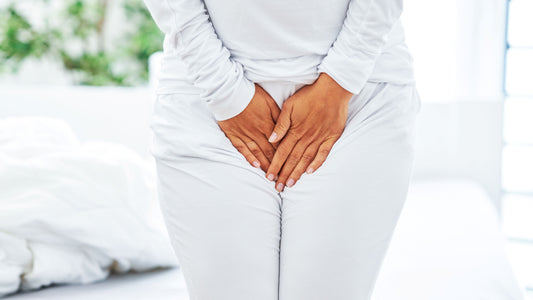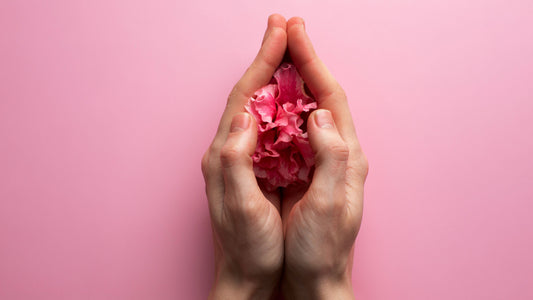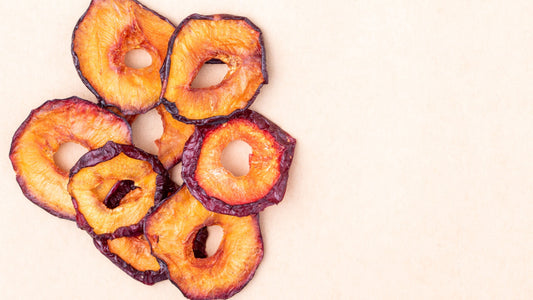Today's available treatment options for vaginal dryness are only partially effective. Many don't address related symptoms such as pain during intercourse or urinary leakage. There are also known safety risks relating to chemicals that some solutions contain.

Many menopausal and post-menopausal women experience vaginal dryness due to declining hormones. But younger women can experience vaginal dryness as well.
Treatment for vaginal dryness and related discomfort has been traditionally limited to:
- lubricating creams,
- moisturizing products,
- herbal therapies and essential oils, and
- prescription-based estrogen options.
Today I want to focus only on Over-The-Counter (OTC) treatment options for vaginal dryness; those that do not require a prescription.
Are you as dry as a desert? How to get lush again!
Lubricants and Vaginal Moisturizers
While helpful for lubrication these products are primarily cosmetic and provide only temporary relief. They may help with irritation, and may possibly help with painful intercourse by reducing vaginal dryness at the time. They do not provide any support for urinary leakage, nor do they address vaginal thinning or other permanent issues. There are also a few cautions you should be aware of:
• Water-based lubricants - there are many OTC commercial offerings available. Read ingredient labels carefully as some contain chemicals.
• Oil-based lubricants include mineral oil, petroleum jelly or baby oil. These are not recommended as they can actually cause irritation and have also been associated with high rates of latex condom breakage.
• Vaginal moisturizers - again, there are many OTC commercial offerings available. Read ingredient labels carefully as some contain chemicals.
Natural Lubricant Solutions
Natural solutions such as organic coconut oil and Ayurveda ghee (combined with herbs) are also available. These don't contain the additional chemicals that can be seen in other commercial products. While these solutions also don't provide long-term relief, they can be enjoyable by reducing discomfort during intercourse.
I recorded a video to show you how you can make your own healthy natural lubricant! Check that out here...you can use ingredients you already have around your house...!

Do It Yourself Lubricant from your Cupboard! Temporary relief from dryness!
Essential oils
I have a few favorite essential oils that I like to mix with my DIY lubricant. Particular ones (among my favorites!) that have been shown to soothe vaginal tissues include Salvia sclarea, Roman chamomile or Cape chamomile, rose, lavender, frankincense, and sandalwood. A word of caution. Never use essential oils straight into the vagina. Always use a carrier oil or my recipe above, and test the oil first on your inner arm to make sure it doesn’t irritate you.
If you don’t have the time, energy, or inclination to make your own natural lube, consider using my new (2025) aloe and water-based lubricant, Velvé. Especially formulated to address menopausal and postmenopausal dryness and irritation during intercourse and other sexual activities. Safe, clean, nourishing… and effective! Read more about how it was designed for specific menopausal intimacy needs here.
Herbal Therapies
Several OTC herbal remedies are available containing magnolia bark, black cohosh, soy isoflavones and other ingredients. Research on these is a little light and has seen some inconsistencies.
Black cohosh has been shown in some studies to address hot flashes and night sweats symptoms.
Soy products are an area of controversy and may not be appropriate for women having breast cancer. Soy products may contain soy that has been genetically modified. I typically recommend non-GMO fermented soy such as miso or tempeh in moderation.
Sea Buckthorn oil can help with mucosal integrity within the vagina; reducing vaginal dryness and irritation. Research has shown it can improve moisture and elasticity within the vagina, becoming a potential natural alternative for women not able to use estrogen treatment for vaginal atrophy (i.e. due to breast cancer concerns).
DHEA
As an Emory-trained physician, as early as 1999 I started using bioidentical DHEA and Testosterone with patients, having them use it vaginally or applying it topically to the vulvar area.
I routinely achieved positive results with my patients for improvements to vaginal dryness. They also often saw a reduction in irritation and pain during intercourse. There were often improvements in libido and sexual satisfaction. Some patients reported decreased urinary leakage.
Since that time there has been a good deal of research substantiating the benefits of DHEA relating to vaginal dryness, vaginal pain during intercourse, incontinence and libido. You can read my detailed article here to see some of the research regarding how DHEA is a great solution for vaginal dryness.
My research concluded that a small 5-10 mg daily dosage of DHEA topically applied achieved excellent symptom improvements.
The Birth of Julva
The combination of that dosage of DHEA along with the other quality natural ingredients is now available as Julva®, a restorative topical cream for the vulva. It has already helped thousands of women, with many offering heartfelt testimonials about how Julva® has helped them physically, mentally and sexually.
I’ve perfected my Julva® cream with love and prayers that it helps women around the world feel good about their sexual health, especially as they deal with the normal changes of age.
I’ve focused on making it really safe (see the excellent results relating to DHEA in women having had breast cancer), and it is designed to effectively improve the divinely designed function of our beautiful, feminine, pelvic floor.

The feminine you will love Julva®.
Learn more about Julva® today!




